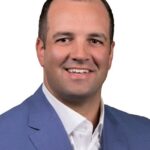April 21, 2021 – For nearly five months, Jackson Health System has embraced one of the most ambitious public health projects in its history: vaccinating the community against COVID-19. Since administering its first shot on December 15, 2020, Jackson has been a leading provider of this potentially lifesaving vaccine in Miami-Dade County, vaccinating more than 167,000 people, and administering a total of 301,000 Pfizer doses.
Following an increase in access to shots throughout the county and a decrease in demand in appointments at Jackson’s three vaccination sites, Jackson will stop providing first shots to the public after April 30. Anyone who receives a first shot at Jackson is guaranteed a second dose, with those appointments continuing until May 21 at our three vaccine locations: Christine E. Lynn Rehabilitation Center, Jackson South Medical Center, and North Dade Health Center.
“In the first months, we were providing an overwhelming share of our community’s volume. Thankfully, coordination among federal, state, local, and private stakeholders has dramatically expanded access across Miami-Dade. As a result, we have seen a decrease in demand,” said Carlos A. Migoya, CEO of Jackson Health System. “Jackson is not finished with the pandemic. We are still dedicating substantial resources to treating COVID-positive patients in our hospitals, emergency departments, and clinics.”
Over the course of Jackson’s vaccine efforts, the health system remained committed to reaching people in minority and underserved communities through partnerships with houses of worships and non-profit groups. As a result, more than 52,000 people received the COVID-19 vaccine. In total, 15 percent of people who self-identify as Black and 54 percent of people who self-identify as Hispanic have received the vaccine at Jackson.
Jackson Health System will continue to produce multilingual, multi-platform outreach assets featuring our doctors, nurses, and other experts educating our community about the importance of vaccination and how to stay safe as we move forward to herd immunity. For more information on our COVID-19 community outreach education program, visit SafeAtJackson.org.

























